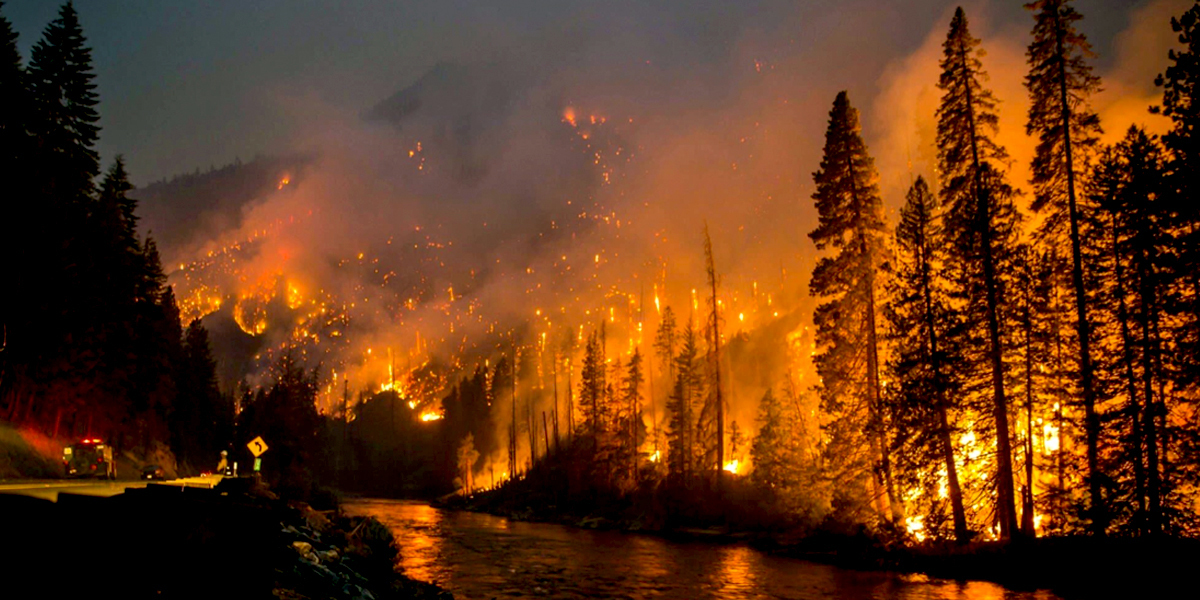
Unprecedented ‘Super Fires’ Devastate Smoky Mountains, Death Toll Climbs to 11

Wildfires have devastated eastern Tennessee. The blaze has claimed 11 lives, forced about 14,000 people to evacuate and destroyed hundreds of buildings in Sevier County.
Due to continued erratic winds, the fires are very unpredictable and more fire growth is expected. pic.twitter.com/BYd9ANQeT4
— GreatSmokyNPS (@GreatSmokyNPS) November 29, 2016
The wildfires started Sunday from the Great Smoky Mountains and was carried by nearly 90mph winds into the city of Gatlinburg by Monday. Making matters worse, the strong winds also knocked over power lines, sparking even more fires. National Park Service spokeswoman Dana Soehn told CNN that investigators believe the fire started on a mountain trail and was “human caused.”
As of Wednesday night, the main fire has only been 10 percent contained, fire commanders told NBC News.
More than 17,000 acres in the Great Smoky Mountains have been scorched, causing untold damage to wildlife and other natural resources.
“The Great Smoky Mountains are one of the most biologically diverse places in the United States, partly due to the geologically ancient nature of the landscape, as well as the wet and humid forests covering their slopes and hollows,” Bruce Stein, associate vice president for conservation science and climate adaptation at the National Wildlife Federation,
said.
“While fire is a natural phenomenon in Appalachian forests, these extreme, drought-fueled fires are not,” Stein continued. “Rather, they are a glimpse into what many southeastern forests and communities will experience as climate change continues to intensify.”
Indeed, much of the southeastern U.S. has been inundated by wildfires in recent weeks. Record-breaking drought and unseasonably warm temperatures have fueled the region’s devastating wildfires.
Record-Breaking #Drought and #Wildfires Plaque Southeast @EcoWatch https://t.co/6CGheQTXP9 @ClimateReality @wunderground #Weather #climate
— EcoWatch (@EcoWatch) November 15, 2016
As the
New York Times pointed out, there’s a clear connection between the wildfires and an ever-warming planet:
“The fires spread through Tennessee as much of the South has been enduring a crippling drought, even though rainfall this week offered some relief. The United States Drought Monitor reported last week that 60 percent of Tennessee was in ‘exceptional’ or ‘extreme’ drought, the two most severe ratings.
“Wildfires, once a seasonal phenomenon, have become a consistent threat, partly because climate change has resulted in drier winters and warmer springs, which combine to pull moisture off the ground and into the air.”
A study in Nature Communications revealed that from 1979 to 2013, wildfire season has lengthened and the global area affected by wildfire has doubled. CNBC also reported that we are entering an era of “super fires” due to climate change causing hotter and drier weather.
“Based on what we know and in which direction the climate is going, yes, we can expect more frequent super fires,” Marko Princevac, a fire expert at the University of California at Riverside, told CNBC. “There is scientific consensus that climate change will lead to much more intense fires, more dry areas.”
The Tennessee wildfires have crept to Pigeon Forge, the home of singer and actress Dolly Parton’s Dollywood. While the theme park was not damaged, Parton released a statement saying that she was heartbroken about the fire damage and had been “praying for all the families affected.”
God protect the people and the animals of East Tennessee~ #PrayForTheSmokies #seviercounty #gatlingburg #pigeonforge #SmokyMountains pic.twitter.com/dXlPuPdfM4
— Tami Marie (@gypsymarie79) November 29, 2016
On Sunday, the Sevier County native released a public service announcement with Smokey Bear to promote wildfire preparedness amidst troubling drought conditions.
“This extended drought has resulted in high wildfire danger,” Parton said. “As dry as it is, please help fire fighters avoid wildfires.”
Update: This piece has been updated to reflect the raising death toll from the Tennessee wildfires, from seven to 11.

 233k
233k  41k
41k  Subscribe
Subscribe 
